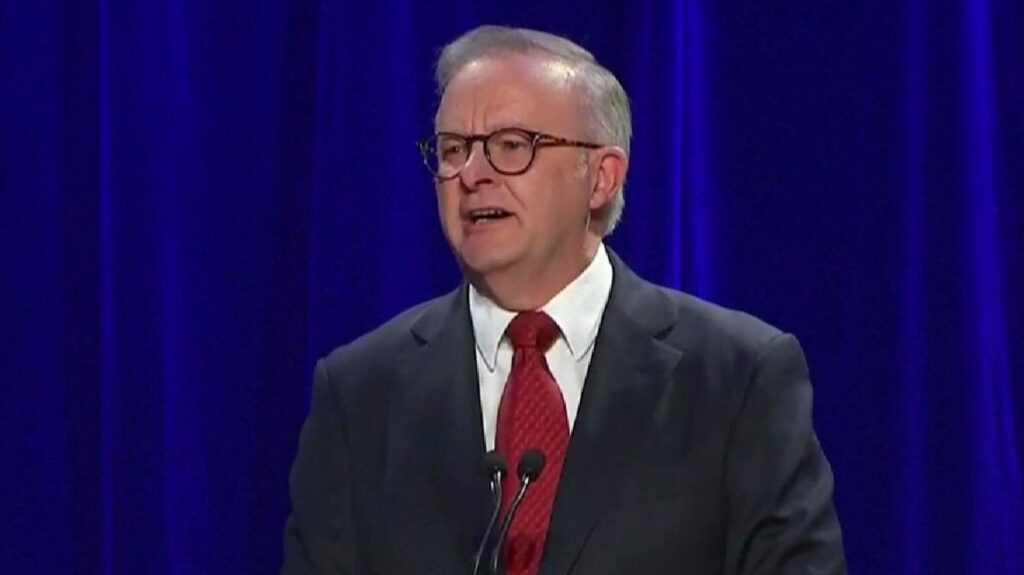IN THE MEDIA
Australia’s Labor Party must fix Israel ties, fight antisemitism
May 8, 2025 | Ahron Shapiro

Jerusalem Post – 8 May 2025
The re-election of Australian Prime Minister Anthony Albanese’s Labor Party (ALP) on May 3 with a greatly increased majority was ultimately due to the voting public supporting its economic policies over the opposition Liberal-National Coalition’s vision.
Notwithstanding that, over the past 19 months, the effects on Australia of Hamas’s October 7, 2023 massacre were certainly important factors that influenced how Jews cast their votes.
Following less-than-stellar support for Israel by the Albanese government since the atrocities of October 7, Jewish discontent with the current government has been growing, not just over Israel but also soaring antisemitism.
In electorates where the Jewish population was large enough to influence a close race, postal votes from religiously observant Jews (elections are always held on a Saturday) have kept several races still too close to call.
Nationally, the Israel-Hamas War had little effect on the election’s outcome, which followed a well-executed campaign by the incumbent, who focused on decreasing the cost of living and benefited from the tailwind of anti-Trump sentiment.
Trump’s policies worked against opponents on the Right, similar to what apparently happened last month in Canada’s election, where its Liberal government defied expectations and secured a fourth term.
Since its election in 2022, and especially since the October 7 Hamas attacks, the Labor government’s policies and statements about Israel have moved from bipartisan as well as away from the Jewish community’s consensus view.
However, even though the government has moved its position toward the Muslim community’s consensus view, it hasn’t gone nearly far enough in that sector’s eyes: it hasn’t yet recognized Palestine as a state, it hasn’t entertained accusations of “genocide,” and it certainly hasn’t moved toward sanctions.
By trying to sit on the fence and please both sides on this issue, the government has pleased no one.
In areas with a strong Muslim population, there was a swing away from the government toward Muslim candidates, but not enough to affect the outcome.
While the government spun this haphazard political strategy as some kind of achievement, it neither advanced Australia’s core foreign policy interests nor bolstered “social cohesion” at home. The atmosphere, under the current leadership, however inadvertently, was conducive to antisemitism flourishing.
Thousands of anti-Israel activists marched through city streets weekly, vandalizing property, harassing and menacing Jews; on several occasions, this occurred outside of synagogues. A Melbourne synagogue was gutted by arson, while another in Sydney only narrowly escaped the same fate.
Regarding the war in Gaza, the government’s cynical policy sought to dance at two weddings at the same time, with contradictory stances that ignored the reality on the ground and resembled wishful thinking more than sound statecraft.
While Australia has advocated for a return to a ceasefire, it has also called for the unconditional and immediate release of all hostages, and declared there “must be no role for Hamas” in any future Palestinian state.
If such a tidy set of goals were as easy to achieve as they were delineated in an ALP campaign letter to the Jewish community, the war would have ended long ago.
Most damaging policy
Perhaps the most damaging of all of the ALP’s policies is support, in principle, for the recognition of a Palestinian state before a peace agreement is negotiated directly between Israel and the Palestinians. This would be a disastrous reward for terrorism and undermine any incentive for the Palestinians to end the conflict.
The Albanese government has emerged from the election with a clear mandate to lead, and yet, paradoxically, the election results may risk encouraging continued abdication of national leadership in several areas. These include a lack of principled support for Israel in its war against Hamas, Iran, and its regional terror proxies; and the need to take a firmer stand against antisemitism, especially when cloaked in anti-Zionism.
However, the stark setback for the aggressively anti-Israel Greens may encourage the government to push back more vigorously against the unprecedented levels of antisemitism.
The challenge for Prime Minister Anthony Albanese’s government will be to resist the natural political inertia that comes with a successful reelection campaign. It should remember that the government in Canberra is there to serve not only the people who agree with them, but the entire nation.
Moreover, the government must realize that its successful reelection political strategy cannot, and should not, serve as a guide for setting foreign policy; nor is it a strategy for promoting social cohesion and combating antisemitism, let alone a plan to advance Australia’s national security interests.
The Albanese government has shown its ability to campaign and win elections. Now it’s time to lead and repair its strained relationships with Israel and Australian Jewry that are harming Australia’s interests, domestically and internationally.
The writer is a senior policy analyst at the Australia/Israel and Jewish Affairs Council.
Tags: Antisemitism, Australia, Australian politics, Israel





